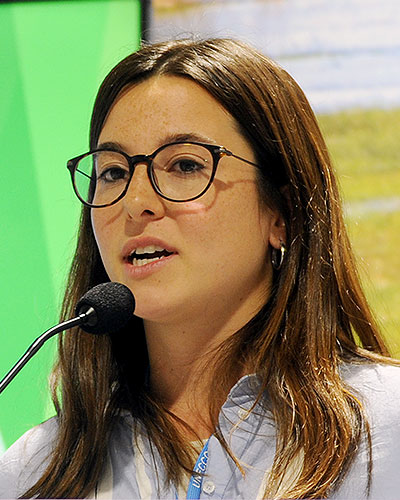
The pandemic has proven that we can no longer maintain a linear economic model based on fossil resources that affects natural cycles. Bioeconomy proposes a sustainable and circular economy that operates within planetary boundaries and thus is key for green recovery strategies worldwide. I imagine that during 2021 many business opportunities related to bioeconomy will develop at a very quick pace, providing solutions in many sectors. In particular, biotech enterprises have a key role in the diagnosis, prevention and treatment of COVID-19. Also, many bio-based solutions can reduce environmental pressures of conventional activities, for example, by recovering and obtaining value from many residues that are traditionally discarded.
Uruguay prepared a biostrategy that is now under political validation. The proposal “Bioeconomy Strategy: towards a sustainable and circular economy in Uruguay” was elaborated by an interinstitutional working group led by the Ministry of Livestock, Agriculture and Fisheries. It includes four strategic axes for the development and promotion of the bioeconomy: (1) Sustainable and circular production and consumption; (2) International integration based on environmental added value; (3) Science, technology and innovation oriented to bioeconomy; and (4) Inclusive territorial development. It defines specific action lines for each of these strategic axes, as well as crosscutting axes. The sectors that are considered key for the development of the bioeconomy in Uruguay are: food and drinks (including primary and industrial phases), forest resources, chemical and pharmaceutical, ecotourism, aquatic biological resources, and waste and by-product recovery. The next steps for the implementation of the Strategy include the definition of the new governance, stakeholder involvement, elaboration of the 2025 Action Plan and the implementation of a Monitoring and Evaluation system for bioeconomy.
During the next World BioEconomy Forum I expect to meet much more people from different sectors and disciplines that are walking the bioeconomy journey. Businesses, government officials, researchers, and developers, all making valuable contributions to shape the future bioeconomy. I see sustainability and circularity in the heart of the biostrategies worldwide, and Latin America as a big driver of sustainable bioeconomy in the developing world. Fingers crossed, I hope we can all travel to Brazil and be face-to-face at that point!